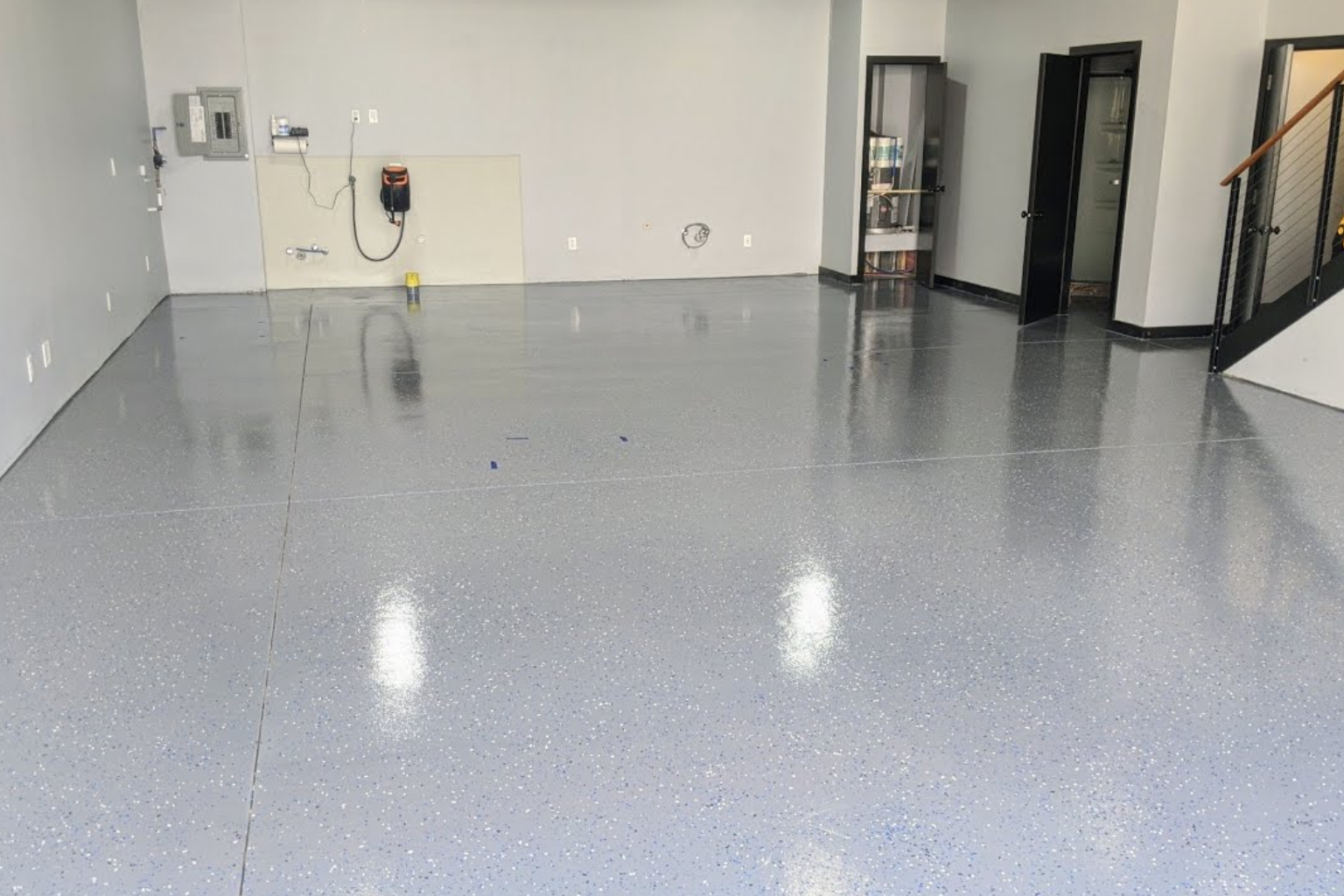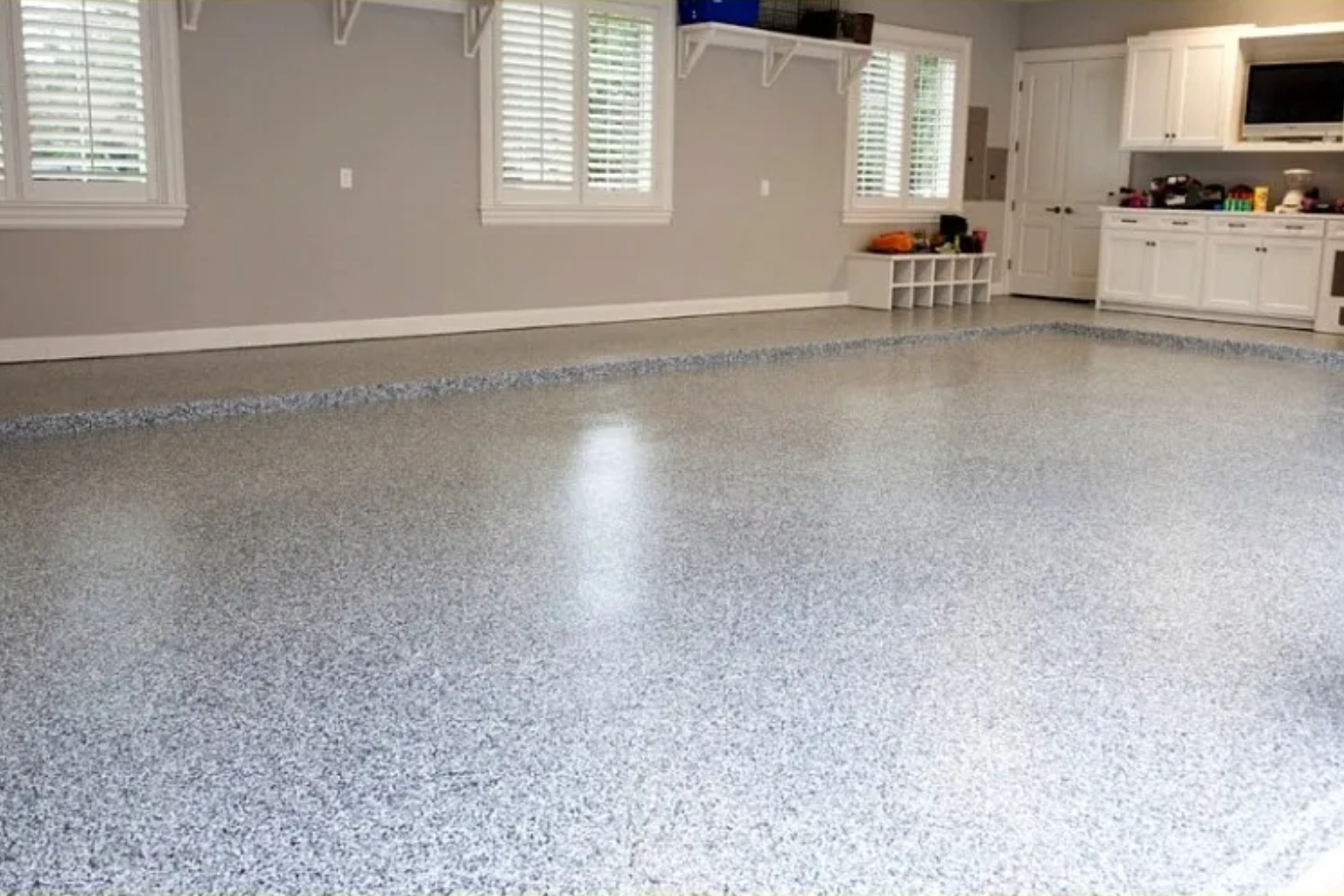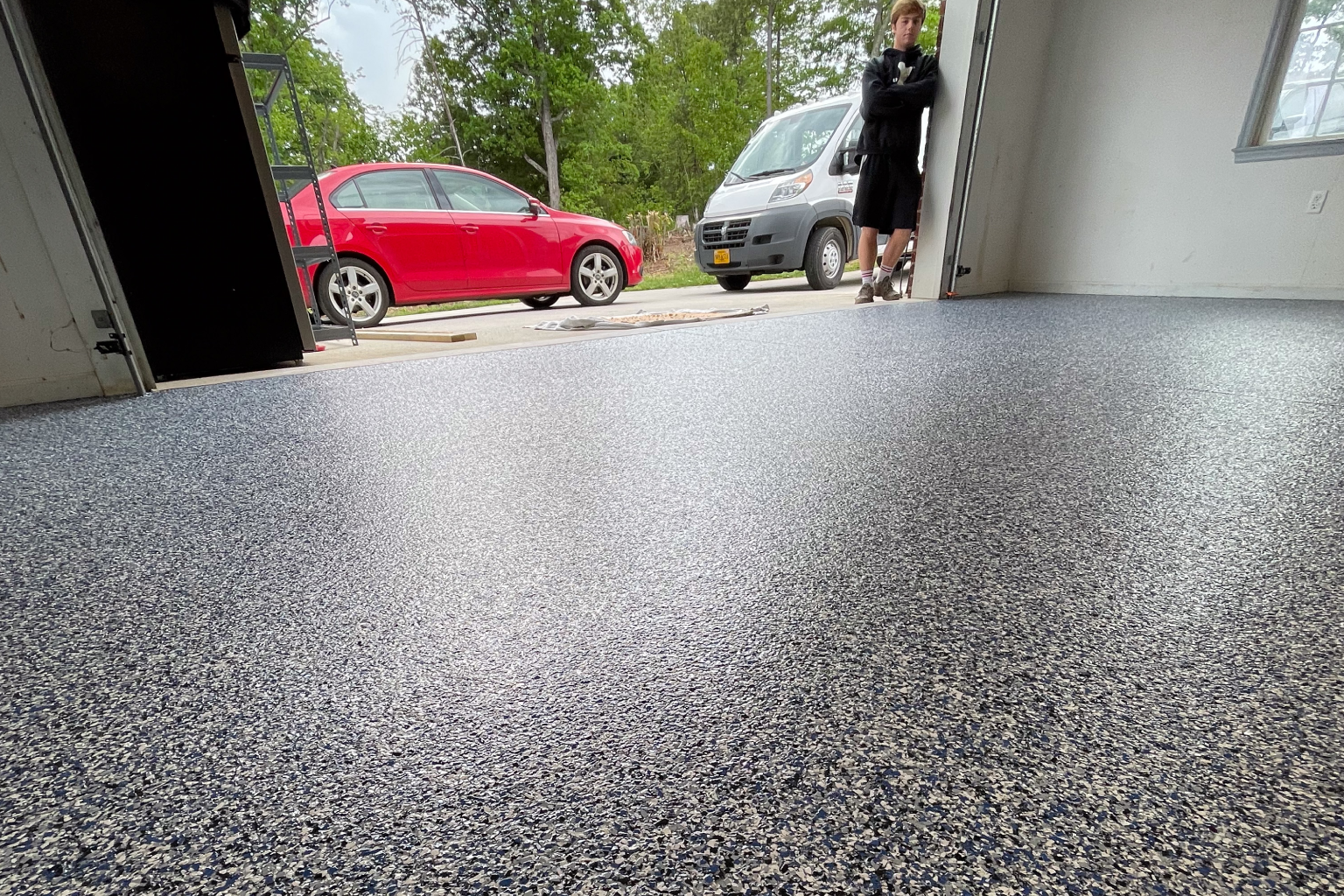Imagine a material that bonds almost anything together, creates a glossy finish, and adds incredible strength to surfaces. That’s epoxy. It is made by mixing resin with a hardener, which starts a chemical reaction. After it hardens, epoxy becomes tough, solid, and able to resist many types of damage.
Epoxy is not just glue. In fact, you can use epoxy for anything. From sealing warehouse floors to shining on wooden furniture, it could be used in thousands of industries and for thousands of projects. Epoxy not only withstands moisture, rubbing, and chemicals, but has significant durability and adhesion that goes beyond any discussions of glue.
Its strength and protective ability have contributed to the growing popularity of the use of epoxy in construction, flooring, electronics, crafts, and art projects. It can be used either as a coating, sealant, or adhesive, and most importantly, epoxy will stay put where other materials would fail.
With so many uses, one key question stands out: Is epoxy heat-resistant enough to handle tough conditions? Let’s explore this guide to uncover the answer and learn how the right epoxy can perform under heat
Is Epoxy Heat-Resistant?
Many people ask: Is epoxy resin heat-resistant when working on other projects? The truth is that regular epoxy has its limits. It can handle moderate heat, but it will start to break down when exposed to medium temperatures for long periods. A normal epoxy may weaken, yellow, or possibly delaminate from whatever surface it is bonded to at around 150°F (65 °C).
This is why heat-resistant epoxies are better for harsh environments. High-temperature epoxy and high-heat epoxy stand up to heat, as normal products do not. The formulations are made to withstand exposure to heat and not weaken, even when it’s continuous. It keeps incredible adhesion, long-term durability, and protection where regular epoxy does not.
By using high-temperature epoxy resin, surfaces stay strong and stable. It prevents peeling or delamination, even under oven-dry heat. This makes it useful for kitchen countertops, automotive repairs, flooring, and heavy industrial projects. In any of these examples, high-temperature epoxy solutions will hold up and perform under heat, not losing its strength.
What is High Temperature Epoxy?
High-temperature epoxy is a special kind made to handle very high heat. Most standard epoxies cannot hold up well once the temperature rises above 150°F (65°C). But, high-heat epoxy is designed to maintain its mechanical strength up to temperatures above 300°F (150°C).
The high-temperature epoxy resin will form a tough layer after it’s cured. Both heat, moisture, and chemical resistant, using a high-heat epoxy allows for the ability to withstand heavy use. High temp epoxy is an ideal solution for projects where normal epoxy would fail.
The difference is all in the formula. Regular epoxy will work for general-purpose activities, but will likely discolor, soften, and crack under high heat. High-temperature epoxy solutions can effectively withstand extreme heat exposure and maintain stable durability during high temperatures, eliminating the concern of an epoxy solution damaging your project.
Benefits of Heat Resistant Epoxy
There are several benefits of heat resistant epoxy to consider. It offers protection for the surfaces and maintains long-term performance where traditional epoxy might fail.
- High temperature resistant: Regular epoxy can weaken under heat, while high-temperature epoxy is made to remain strong and durable. High temperature epoxy will endure extreme heat without losing bond, shape, color, or grip. High-temperature epoxy is very useful in kitchens, workshops, and industrial applications.
- Durability and strength: Once cured, the high temperature epoxy has a tough layer to withstand daily use. High-temperature epoxy does not chip or crack in most everyday usages, even in larger uses where weight may be a factor. Because of the strength of high-temperature epoxy, it is appropriate for flooring, countertops, and components in machinery.
- Chemical and thermal stress resistant: High temperature epoxy resin not only resists heat but also holds up well against chemicals, oils, and moisture. It stays stable even when exposed to sudden changes in temperature, giving extra protection in demanding conditions.
These examples illustrate why high-temperature epoxy resin solutions are recognized and trusted throughout residential, commercial, and industrial applications. When epoxy offers you these characteristics, you can be confident that the performance cannot be surpassed by ordinary epoxy.
Uses of High Temperature Epoxy Resin
High-temperature epoxy resin is valued for its strength and ability to withstand heat, making it useful in many applications. Whether it’s a large industrial epoxy flooring application or a small project at home, it can provide dependability, protection, and long life.
Industrial Applications
High-temperature epoxy resin is extensively utilized by the larger industries. Because it can withstand immense heat as well as heavy weight and stress on a daily basis. In the aviation industry, it acts as a bond and protects vital components.
In automotive applications, it will prevent damage to and bond engine parts from heat. In electronic applications, the high-temperature epoxy resin protects the tiny circuit boards and helps prevent damage caused by heat.
Home Applications
High-temperature epoxy is useful for residential flooring projects, too. People usually use it for their countertops in their kitchens because of its ability to withstand heat and to protect from hot pans. It can be used for small repairs and craft projects, too. High-temperature epoxy lasts much longer than regular epoxy, making it a better choice for homeowners.
Coatings, Adhesives, and Floors
High-temperature epoxy resin is strong enough to be used for coatings and other floors. It makes a hard layer that can withstand extreme heat, chemical exposure, and scratching. It can bond materials that are exposed to extreme heat, which is also useful in homes and factories.
Choosing the Right High-Heat Epoxy
When selecting an epoxy for a job, you want to determine what the temperature limitations are. Regular epoxy works in normal environments. However, you need acceptable high-temperature epoxy products for high-heat conditions. These specialized products can withstand the maximum heat and remain strong.
Curing is also important. Some epoxy products need heat to cure, while others will cure at room temperature. Information documentation should tell you what curing process is acceptable with the selected epoxy, which will depend on your project and other materials for the application.
The epoxy must match the material. High-heat epoxy should stick well to metal, wood, concrete, or plastic. If it’s not the right type of epoxy flooring, the bond can fail.
- High-temperature epoxy resin is designed for tough jobs when regular products fail.
- When choosing the right formula, it is important to understand how much heat it can withstand and whether the surface will need additional strength.
- Knowing the answer to is epoxy resin heat resistant in different grades helps pick the right option for kitchens, workshops, or industrial projects.
- Making the right choice gives you longevity and better protection.
Conclusion
High-temperature epoxy resin is manufactured to give strength where typical products fail. It gives heat resistance, strong bonding, and long-term durability for rugged environments. By understanding is epoxy resin heat heat-resistant across different grades, you can make an informed choice on which one will meet your project requirements. The right epoxy flooring gives long-lasting results and strong protection for kitchens, workshops, or industries.








